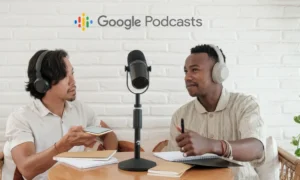The Internet has fundamentally transformed how we access, share, and shape knowledge. One of the most prominent examples of this revolution is Wikipedia, a free online encyclopedia that has become a go-to source for quick references and in-depth knowledge across an astonishing array of topics. Wikipedia leverages the power of crowd-sourcing, enabling users globally to contribute to its vast repository of information. So, let’s embark on this journey of discovery, understanding, and collaboration across the ten websites like Wikipedia that can be edited by anyone.
Whether you are a history buff, a literature enthusiast, a travel lover, a student seeking academic resources, or a passionate fan of pop culture, these platforms offer boundless opportunities to delve into the topics you care about. Just like Wikipedia, these sites invite you to partake in an ongoing global conversation, learn from a diverse community, and leave your mark on the vast body of digital knowledge. Let’s explore the unique features, founding histories, and community ethos of each platform, providing you with a comprehensive overview of these incredible resources.
10 Websites Like Wikipedia That Can Be Edited by Anyone in 2024:
1. Wikibooks
A robust Wikipedia alternative, Wikibooks is a project by Wikimedia, started in July 2003. This free-to-access library features a vast collection of open-content textbooks that can be edited by anyone. Wikibooks encapsulates subjects from Mathematics to Cooking, making it a rich resource for all learning enthusiasts.
As an open-source project, users can contribute to this educational platform by creating new book modules or by refining the existing ones. This platform is ideal for individuals who appreciate sharing knowledge in a structured, academic, and tutorial-like format.
2. Fandom
Founded by Jimmy Wales and Angela Beesley Starling in October 2004, Fandom, formerly known as Wikia, is an excellent website like Wikipedia for pop culture aficionados. This website hosting service for wikis allows anyone to create or edit entries about virtually every pop culture, game, or movie franchise imaginable. These fan-centric wikis offer a deeper dive into various universes, presenting opportunities to share theories, insights, and correct inconsistencies.
Related: Forbes Alternatives – Top 5 Business Websites in the World
3. Wikiquote
A website like Wikipedia that can be edited by anyone, Wikiquote is another project by Wikimedia, launched in 2003. It is an exhaustive compendium of quoted statements from individuals, literature, films, and significant events. It invites users to contribute by adding meaningful quotes or improving and providing context to existing ones. For anyone seeking authenticated and meaningful quotations, Wikiquote is a reliable resource.
4. Everipedia
Everipedia, co-founded by Sam Kazemian and Tedde Forselius in 2014, redefines the traditional Wikipedia model by fostering inclusivity. Known as the “encyclopedia of everything,” Everipedia permits pages to be created about anything or anyone, provided the information is backed by references. Its unique feature is the utilization of blockchain technology, which rewards contributors with IQ tokens.
5. Citizendium
Citizendium was initiated in 2007 by Larry Sanger, co-founder of Wikipedia. This wiki project aims to create a comprehensive, trustworthy, and current encyclopedia. Anyone can edit articles, but Citizendium encourages users to register under their real names, providing a layer of professional credibility. It serves as a balanced blend of the traditional encyclopedia and the modern wiki.
See Also: 5 Websites like Fast Company
6. Scholarpedia
An alternative to Wikipedia, Scholarpedia, founded in February 2006 by Eugene M. Izhikevich, is a peer-reviewed open-access encyclopedia. It combines the academic rigor of peer review with the collaborative principles of a wiki. While anyone can suggest edits to the articles, these proposed changes need curator approval before they are published, ensuring high-quality, expert-verified content.
7. Wikivoyage
Launched in September 2006 by the Wikimedia Foundation, Wikivoyage is an open-source travel guide that invites everyone to edit. Providing both practical information and interesting narratives about destinations worldwide, users can contribute their travel experiences, local knowledge, or updates about the locations they’ve visited, making it a dynamic, user-curated travel guide.
8. Ballotpedia
Ballotpedia, founded in 2006 by Leslie Graves, is a digital encyclopedia focused on American politics and elections. As a Wikipedia-like platform, it allows anyone to contribute information related to US federal, state, and local politics, election rules, and public policy. Its commitment to unbiased, factual information makes it an invaluable resource for understanding the American political landscape.
9. Wikisource
Wikisource, another Wikimedia Foundation project, was established in November 2003 and it can be edited by anyone online. This Wikipedia alternative is an online library of free content publications. Users can enrich this digital library by adding new texts, translating existing works, or proofreading to improve the quality, making it a collaborative hub for literature lovers.
10. OpenStreetMap
OpenStreetMap (OSM), initially launched in 2004 by Steve Coast for mapping the United Kingdom, is a remarkable Wikipedia-like initiative with a geographical focus. Now, this project invites users worldwide to create a free editable map, adding local data like roads, trails, cafés, railway stations, and more. This invaluable resource provides a unique platform for travelers, urban planners, or anyone interested in contributing to the world’s digital cartography.
Related: 10 Websites like The New York Times
Conclusion
Wikipedia is just one among many platforms utilizing collective knowledge and open collaboration to build an information-rich digital landscape. Each of the ten platforms discussed offers a unique focus, feature set, and community, expanding the horizons of open-source knowledge sharing.
While they all invite user contributions, they also emphasize the importance of accuracy, verification, and respect for community guidelines. These platforms, democratizing both knowledge access and creation, are shaping a more informed, interconnected world. Whether you’re seeking to learn or contribute, each website offers unique opportunities to engage with the global knowledge ecosystem.





